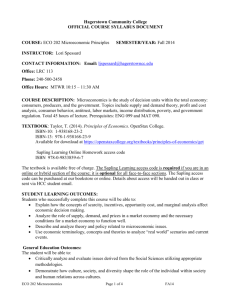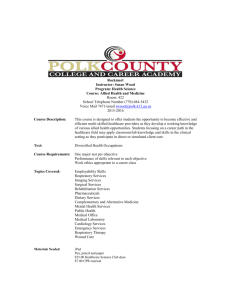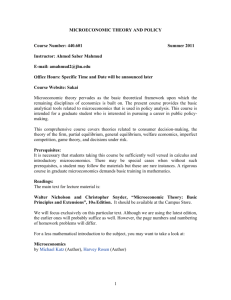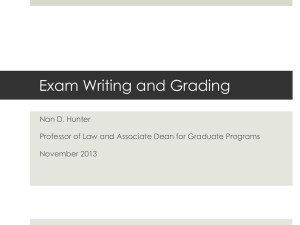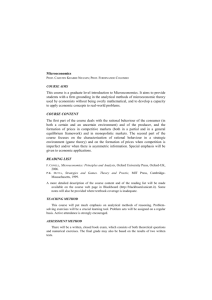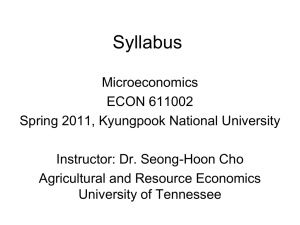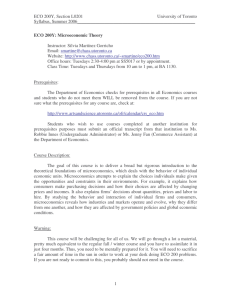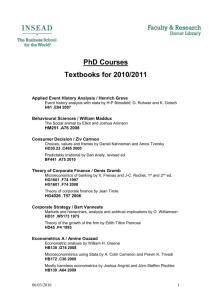ECO 515 – Advanced Microeconomics
advertisement
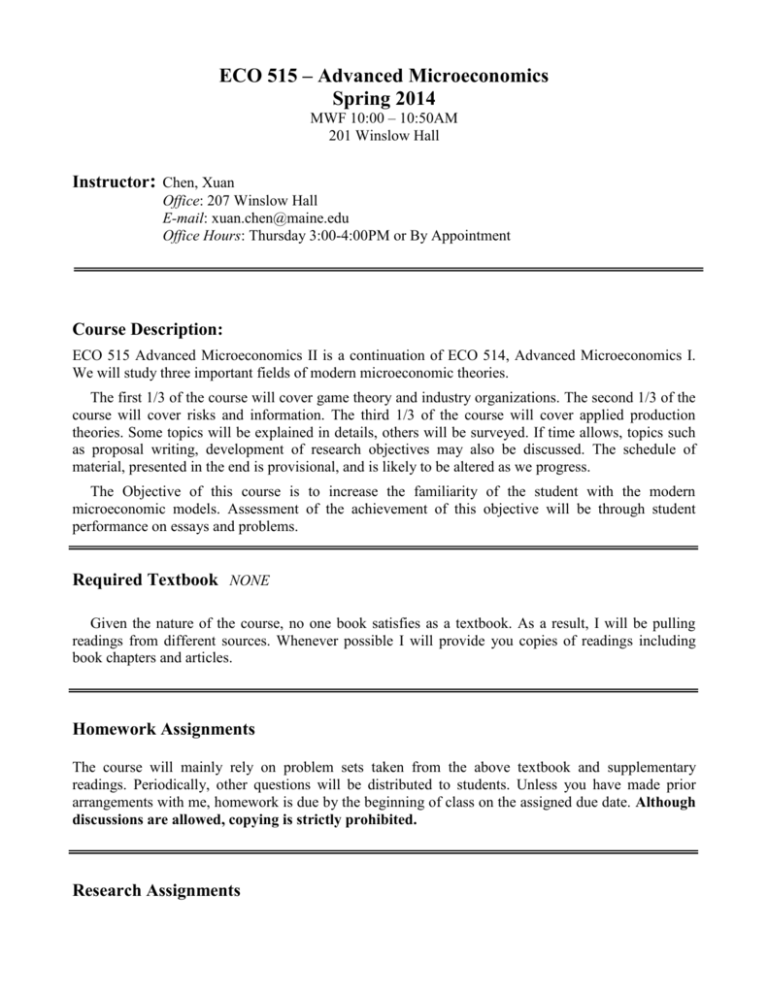
ECO 515 – Advanced Microeconomics Spring 2014 MWF 10:00 – 10:50AM 201 Winslow Hall Instructor: Chen, Xuan Office: 207 Winslow Hall E-mail: xuan.chen@maine.edu Office Hours: Thursday 3:00-4:00PM or By Appointment Course Description: ECO 515 Advanced Microeconomics II is a continuation of ECO 514, Advanced Microeconomics I. We will study three important fields of modern microeconomic theories. The first 1/3 of the course will cover game theory and industry organizations. The second 1/3 of the course will cover risks and information. The third 1/3 of the course will cover applied production theories. Some topics will be explained in details, others will be surveyed. If time allows, topics such as proposal writing, development of research objectives may also be discussed. The schedule of material, presented in the end is provisional, and is likely to be altered as we progress. The Objective of this course is to increase the familiarity of the student with the modern microeconomic models. Assessment of the achievement of this objective will be through student performance on essays and problems. Required Textbook NONE Given the nature of the course, no one book satisfies as a textbook. As a result, I will be pulling readings from different sources. Whenever possible I will provide you copies of readings including book chapters and articles. Homework Assignments The course will mainly rely on problem sets taken from the above textbook and supplementary readings. Periodically, other questions will be distributed to students. Unless you have made prior arrangements with me, homework is due by the beginning of class on the assigned due date. Although discussions are allowed, copying is strictly prohibited. Research Assignments You will be required to do one writing/research assignments. You are to work on the research paper as individuals, not as a class. You will then present your research paper to the class. Plan on each presentation being 20 minutes (15 for the presentation and 5 minutes for questions). Finally, you will design a research poster. Exams Exam questions will test the degree of students’ understanding of the theory and how it could be applied in professional economic analyses. Exams will be composed of problem sets and essay questions and will be held in the classroom. You are to work on the exam as individuals, not as a class. Failures to take an exam, or produce documentation for missing an exam, will result in a grade of a zero. You may take an early / make-up exam if and only if you have a valid excuse and you let me know of your situation in a timely manner. Verification of excuses by a document (for example, physician's note for a medical reason) is required. Grading Numerical grades will be used for all exams and homework; letter grades will be assigned only for the overall course grade given at the end of the semester. Plus and minus grading will be used. Requirements: Grading: Research Paper: Reading List & Outline First Draft Second Draft (optional) Final Draft Research Presentation: Research Poster: Homework: Exam I Exam II 20 2 5 0 13 5 5 20 25 25 Due dates: 1/29 2/26 3/26 4/23 week of 4/30 4/25 2/26 4/25 Office Hour Students are strongly encouraged to visit with me as often as they wish. This may be for help, extended discussion, or anything you want. If you want to schedule a meeting other than office hour, you can send me an email. 2 Emailing Policy Please send emails to xuan.chen@maine.edu. I will attempt to answer your e-mail questions, as quickly as possible. Long, involved questions are best left to another venue. When sending me email, please include “ECO 515” in the subject line. Disability Policy Students with disabilities who may need services or accommodations to fully participate in this class should contact Ann Smith, Director Disability Services in 121 East Annex, (voice) 581-2319, (TTY) 581-2325 as early as possible in the semester. Academic Integrity Policy Academic honesty is very important. It is dishonest to cheat on exams, to copy term papers, to submit papers written by another person, to fake experimental results, or to copy or reword parts of books or articles into your own papers without appropriately citing the source. Students committing or aiding in any of these violations may be given failing grades for an assignment or for an entire course, at the discretion of the instructor. In addition to any academic action taken by an instructor, these violations are also subject to action under the University of Maine Student Conduct Code. The maximum possible sanction under the student conduct code is dismissal from the University. 3

